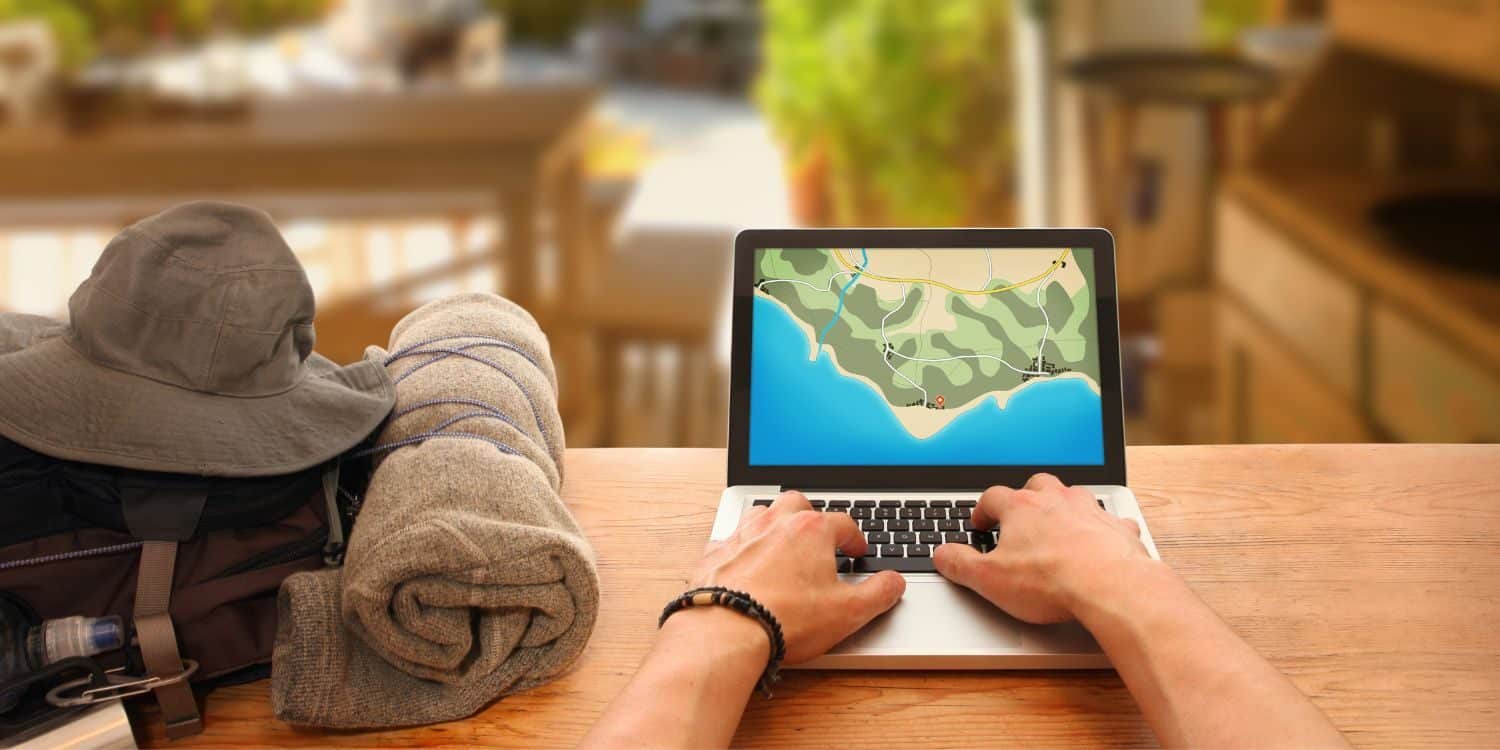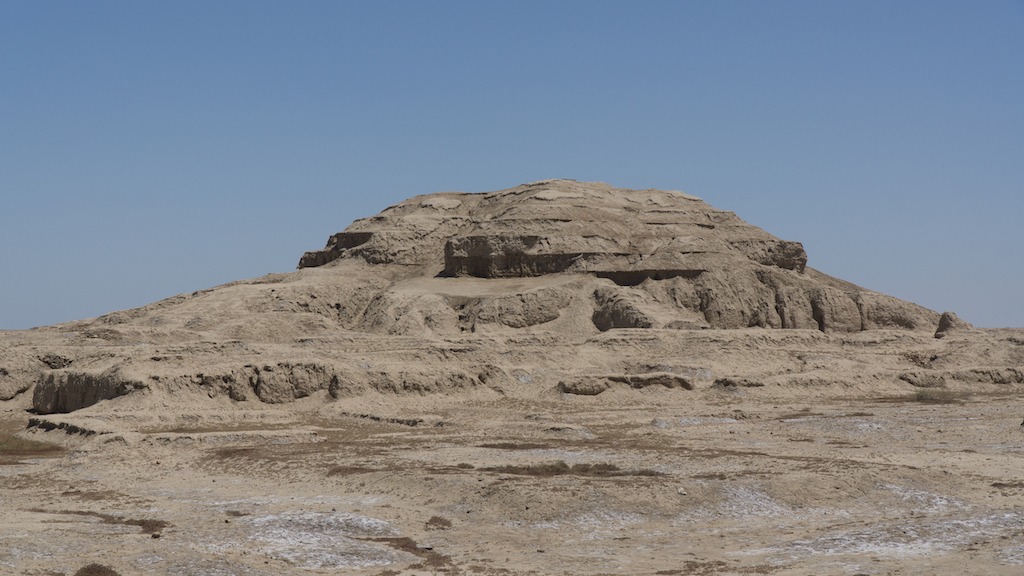Happy Monday! I hope everyone had a restful and fun weekend? Today we are going to look at a phase that started with the access to the internet from anywhere called a Digital Nomad. The term itself came from a book titled The Digital Nomad in 1977 from the publisher Wiley. So what is a Digital Nomad today? Well according to www.thefactsite.com article a Digital Nomad is a like a tourist in many ways. They both enjoy going to new places! But although they both love to travel, digital nomads take it up a notch because they work online and live in different countries for months! This lifestyle is the epitome of “living life to the fullest,” and it has many benefits other than creating memories.
So you may ask yourself how can these Digital Nomads afford this? Well, A digital nomad’s annual income can range from $25,000 to $250,000, which is enough for their monthly expenses, typically costing $1,000 to $2,000.
But of course, their income can go even higher, depending on what they do for a living.
The most common remote work for digital nomads is self-employed jobs like freelance writing, virtual assistance, and social media management.
But it’s worth noting that there are digital nomads who are employees or entrepreneurs.
Regardless of their profession, studies found that digital nomads worked for roughly 40 hours per week – working in co-working spaces, hotels, or coffee shops. Today some even work in hotel common rooms.
Do Digital Nomads pay taxes?
Digital nomads file and pay their taxes from their home country, as they’re considered citizens in that place.
But to avoid some of your tax obligations in your home country, you can declare yourself non-resident for tax reasons.
Countries that welcome digital nomads can also require them to pay taxes.
For example, digital nomads with a Thailand Digital Nomad Visa must pay 17% in taxes instead of a 35% tax rate.
Getting taxed twice can be a pain for digital nomads, but luckily, they can avoid it with the help of tax benefits, such as the Foreign Earned Income Exclusion (FEIE) and the Foreign Tax Credit (FTC) for US citizens.
Can you be a nomad with a child?
You can still be a digital nomad despite having kids, but expect more challenges in traveling and parenting with this kind of setup.
And regarding their children’s education, digital nomads with families either enroll their kids in an online school or homeschool them.
Homeschoolers even have a term for this kind of learning.
It’s called “world schooling.” This educational movement aims to let children study and improve their education by traveling worldwide!
Where do most digital nomads choose to live?
Digital nomads prefer living in Southeast Asian countries since this region offers an affordable lifestyle.
A study from the UK even states that Bangkok, Thailand, is ranked as the best city in Asia and the second-best city in the world for digital nomads.
It’s reasonable, though, as most digital nomads are from countries like the US and the UK that have a high cost of living.
But affordability isn’t the only basis of digital nomads when choosing a city to live in; other factors they consider are the weather, internet speed, and safety.
Also, it doesn’t mean that all countries outside of Southeast Asia aren’t suitable for digital nomads.
In fact, Lisbon, Portugal, ranks number one as the best place for digital nomads.
How long do digital nomads stay in one place?
According to digital nomads themselves, they often live in one place for around one to six months.
But some digital nomads only stay a few weeks in a particular city or country, living in numerous countries in under a month or two!
They’re able to pull it off by strategically planning their thrilling journey.
Generally, a digital nomad’s multi-destination travel plan includes researching places for their itinerary, choosing airlines with better deals, and inviting other digital nomad friends to cut costs.
Are digital nomads minimalist?
Since digital nomads travel a lot, many also live a minimalist lifestyle.
After all, having and bringing a lot of possessions to different countries can be stressful – carrying dozens of books instead of just getting a Kindle is an example.
Most focus on only carrying their travel and work essentials, although others bring more, especially if they travel and live in a camper van.
Of course, this is limited to countries digital nomads can go to without needing an airplane or a boat.
Are digital nomads good for the economy?
Digital nomads are beneficial for a country’s economy for many reasons.
Higher demand for short-term rentals and small hotels is an ideal example.
There are also digital nomad vloggers that do travel vlogs, showing their audience where they go, which leads to attracting more tourists.
This fact makes digital nomads high-value customers for those in the real estate and tourism industry.
That’s why numerous countries are now offering digital nomad visas.
What’s a digital nomad visa?
A digital nomad visa is a type of visa that allows remote workers to keep on working while staying in a particular country.
Think of it as an upgraded version of a travel visa, allowing digital nomads to do their work legally and stay for more extended periods.
Processing and receiving a digital nomad visa can take a few weeks or months, depending on the country they’re applying for a visa.
For example, it can only take 15 to 30 days when you apply for an Estonia Digital Nomad Visa.
But besides Estonia, other countries are also offering visas ideal for digital nomads, such as Germany, Iceland, and Croatia.
Can being a digital nomad improve mental health?
Being a digital nomad is a double-edged sword; it can improve or worsen your mental health.
Recent studies show that digital nomads are more productive, creative, and engaged with their work – three factors that contribute to improving mental health.
But people traveling and working anywhere they want aren’t an exception to challenges and struggles.
An example would be digital nomads being pressured to succeed in their careers because people have high expectations for them.
Working anywhere and any time you want is often associated with “living the dream.” which makes it harder for some digital nomads to share their struggles (which everyone has).
Another struggle digital nomads have is called travel burnout.
Digital nomads who’ve experienced this struggle combat it with what they call “slow travel” – focusing on getting to know more about the country they’re visiting rather than trying to visit as many places in a short time frame.
How old are most digital nomads?
It’s a misconception that a digital nomad lifestyle is only for young people.
Digital nomads are mostly comprised of millennials or those in their mid-20s to early-40s; a study also shows that almost half of digital nomads worldwide are in their 30s.
This age group is the sweet spot for having a stable income that allows them to afford this adventurous lifestyle.
And out of all the generations, millennials were found to be the age group inclined to job-hop, which is perfect for people working remotely.
Many in their 40s to 50s, or Gen X and Baby Boomers, are also a large part of digital nomads, some even turning digital nomads after retirement!
Preventing loneliness was one of the biggest reasons they became digital nomads later in life.
When did the digital nomad lifestyle start?
Living a digital nomad lifestyle started in 1983 when the term “digital nomad” wasn’t even invented.
One of the first ones to enjoy this lifestyle was Steven Roberts.
He was a freelance writer and corporate consultant from Columbus, Ohio, that turned his recumbent bike into his workspace, which he calls Winnebago.
The term “digital nomad” was eventually created in 1997 because of a book published by Wiley called The Digital Nomad.
Tsugio Makimoto and David Manners wrote it, and their book clearly defines what digital nomads are doing now.
Living in another country while working without the need for an office feels surreal.
That’s why more and more people are shifting to the world of remote work to achieve this lifestyle.
And countries are more than willing to support this since it benefits their economy.
It also doesn’t matter whether you’re in your early 20s or late 50s. You can still become a digital nomad because the point of this lifestyle is to have freedom.
So, does the Digital Nomad lifestyle sound good to you? If so perhaps you should give it a go. You can even date as a Digital Nomad with events targeted to them and on-line dating apps for the areas you are located. For me one day I may give this a go and go to Iceland. I wrote my Master's paper about starting a business there and always wanted to visit the place. Would you consider being a Digital Nomad?
I have lost a lot of faith with the Medical Community and the Governments over the last several years, but there are a few good things that can raise above the corruption and the pushing of drugs a new approach to heal people. The following is from www.gaia.com and written by Hunter Parsons that does not involve any drug or pushing an ineffective so called vaccine that the drug company is not held accountable in any way but they use sound! The use of sound can regrow bone tissue! Here is the story:
"The future of regenerative medicine could be found within sound healing by regrowing bone cells with sound waves.
The use of sound as a healing modality has an ancient tradition all over the world. The ancient Greeks used sound to cure mental disorders; Australian Aborigines reportedly use the didgeridoo to heal; and Tibetan or Himalayan singing bowls were, and still are, used for spiritual healing ceremonies.
Recently, a study showed an hour-long sound bowl meditation reduced anger, fatigue, anxiety, and ...
Not a fan of a Defense Agency studying Anti-Gravity and other Exotic Tech, but if the commercial world and make this technology cheap that will change our world yet again. The following is about three minute read and from www.gaia.com. The below was written by Hunter Parsons:
"Wormholes, invisibility cloaks, and anti-gravity — it’s not science fiction, it’s just some of the exotic things the U.S. government has been researching.
A massive document dump by the Defense Intelligence Agency shows some of the wild research projects the United States government was, at least, funding through the Advanced Aerospace Threat Identification Program known as AATIP.
And another lesser-known entity called the Advanced Aerospace Weapons System Application Program or AAWSAP
The Defense Intelligence Agency has recently released a large number of documents to different news outlets and individuals who have filed Freedom of Information Act requests.
Of particular interest are some 1,600 pages released to Vice News, which ...
As our technology gets better we are discovering more about the history of mankind and pushing the timeline back further and further. The following article is from www.gaia.com and written by Michael Chary that discusses this new find that changes the historical timeline:
"Over the past decade, there have been a number of archeological revelations pushing back the timeline of human evolution and our ancient ancestors’ various diasporas. Initially, these discoveries elicit some resistance as archeologists bemoan the daunting prospect of rewriting the history books, though once enough evidence is presented to established institutions, a new chronology becomes accepted.
But this really only pertains to the era of human development that predates civilization — the epochs of our past in which we were merely hunter-gatherers and nomads roaming the savannahs. Try challenging the consensus timeline of human civilization and it’s likely you’ll be met with derision and rigidity.
Conversely, someone of an alternative...
Not sure if you have heard of a show on YouTube called "The Why Files". If not you should check it out it is interesting and has some humor with it on different subjects. Last weeks was on a different theory how the Universe works and how main stream Science is attempting to shut it down like is always seems to do if it goes aguest some special interest. Today it is akin to what happened to those who questioned the Earth was the Center of the Universe that main stream so called Science all believed during the Renaissance period, They called any theory that the Earth was not the Center of the Universe misinformation. Does this sound familiar today? People laughed and mocked people like Leonardo da Vinci, Nicolaus Copernicus, Georg Purbach as crack-pots, conspiracy theorists, nut-jobs and they were suppressed and even imprisoned for their radical thoughts and observations. Again it sounds like today in so many ways. In any event this is a good one to ponder and see even if a bad idea ...
Seemingly chaotic systems like the weather and the financial markets are governed by the laws of chaos theory.
We all have heard about chaos theory, but if you have not or have forgotten what chaos theory is well here you go from interestingengineering.com:
"Chaos theory deals with dynamic systems, which are highly sensitive to initial conditions, making it almost impossible to track the resulting unpredictable behavior. Chaos theory seeks to find patterns in systems that appear random, such as weather, fluid turbulence, and the stock market.
Since the smallest of changes can lead to vastly different outcomes, the long-term behavior of chaotic systems is difficult to predict despite their inherently deterministic nature.
As Edward Lorenz, who first proposed what became commonly known as the Butterfly Effect, eloquently said, "Chaos: When the present determines the future, but the approximate present does not approximately determine the future.""
You may have heard the term about chaos theory as a butterfly flaps its wings in Brazil,...
I for one have lost trust in Medical Doctors due to COVID and reflection that they seem to push pills for everything and untested so called vaccines that is using a unproven technology because the Government and the Medical Boards of the State told them to. There are a very few exceptions. Thus they do not address the key problem just prescribe more and more pills to keep you alive an sick longer for them and Big Phama to profit from you. Will AI do any better? Well that depends on what was used for the training of AI. If it also pushes pills and vaccines without question then you have the same problems noted above. However, if the AI Training includes all possible forms of treatment and they zero in on the right issues for the true problem then there is possibilities they would be way better than most of the current Medical Doctors today.
The following is from an article from interestingengineering.com and written by Paul Ratner:
"A new study looks at how accurately AI can diagnose patients. We interview the researcher, who weighs in on AI's role ...























